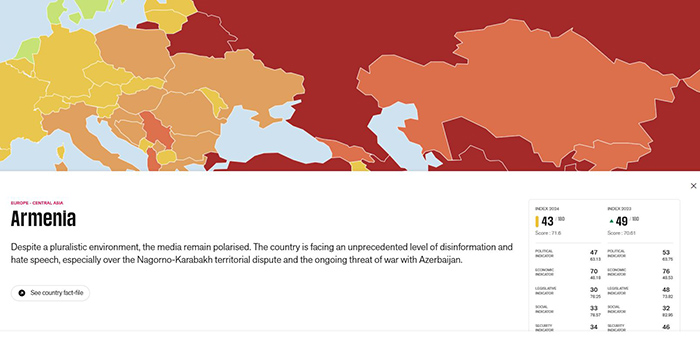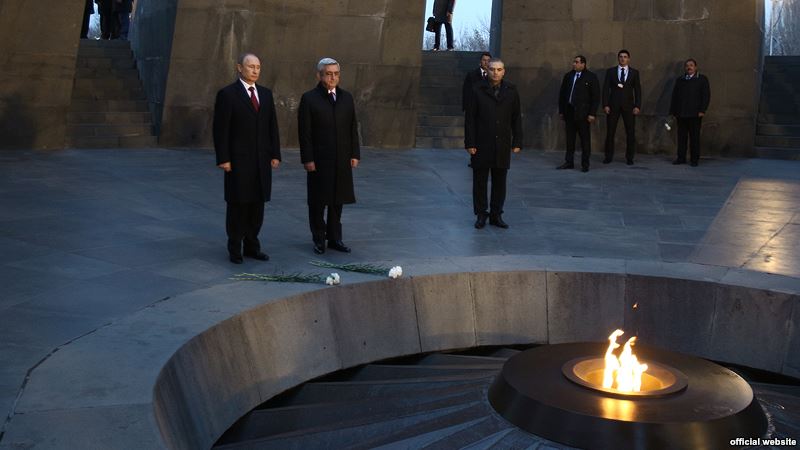PARIS — Armenia ranks 43rd (up from 49th last year) in the 2024 World Press Freedom Index released by Reporters Without Borders today.
Georgia is 103rd in the ranking, Russia is 162th, Turkey and Azerbaijan are ranked 158th and 164th respectively. Armenia’s southern neighbor Iran is 176th on the list.
The report says that despite a pluralistic environment, the media in Armenia remain polarized. It notes that the country is facing an unprecedented level of disinformation and hate speech, especially over the Nagorno-Karabakh dispute and the ongoing threat of war with Azerbaijan.
“The polarization of the media mirrors that of the political scene: many media outlets are close to political leaders who emerged after 2018 “Velvet Revolution”, while others remain loyal to former oligarchs. Social media, accessed daily by two-thirds of the population, is the main source of information and independent news are thriving and are fulfilling an independent watchdog role that is essential in a democracy. Nevertheless, most broadcast and print media, affiliated with major political and commercial interests, continue to face pressure concerning their editorial policy,” Reporters Without Borders says.
According to the report, two political topics are especially sensitive in the country, the ethnic cleansing of Armenians from Nagorno-Karabakh and the strained relations between Armenia and Russia. Some political groups carry out disinformation operations and target journalists.
According to the report, Press freedom around the world is being threatened by the very people who should be its guarantors – political authorities. This finding is based on the fact that, of the five indicators used to compile the ranking, it is the political indicator that has fallen most, registering a global average fall of 7.6 points.
The overall decline in the political indicator has also affected the trio at the top of the World Press Freedom Index. Norway, still in first place, has seen a fall in its political score, and Ireland (8th), where politicians have subjected media outlets to judicial intimidation, has ceded its leading position in the European Union to Denmark (2nd), followed by Sweden (3rd).










